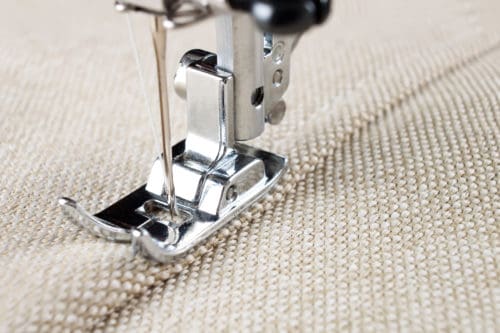Berry Compliant Fabric Overview
Leave a CommentBerry Compliant fabrics are necessary for manufacturers entering into contracts with the Department of Defense (DoD). The Berry Amendment outlines requirements for purchasing U.S.-produced textiles to support domestic industry. Learning more about what Berry Compliance is and why it matters can help you choose the right material for your application.
Berry Compliance Definition and History
The Berry Amendment is a statutory requirement that Congress passed in 1941 mandating that DoD projects use materials that are made or processed in the U.S. This requirement was originally meant to protect U.S. textile interests during times of war, and it still applies today, for products such as tools, food, tents, clothing, and other textiles.
If you are manufacturing products for use by the DoD—or you’re fulfilling a contract that uses DoD funding—the materials you choose typically need to be Berry Compliant. Companies that have DoD contracts must certify that their goods are 100% domestically produced.
However, there are exceptions. Purchases might be exempt if they are for small contracts totaling below a defined minimum, contracts providing emergency products or perishable items to personnel abroad, production contracts with allies, and contracts that can’t be compliant because of a product’s domestic unavailability.
What Is Berry Compliant Fabric?
For a fabric to be Berry Compliant, that fabric and its components (such as the yarns and fibers, fabrics, and other textiles used to make the material) must have been domestically grown, made, or processed. As the U.S. has a diverse agricultural and industrial sector, a lot of different fabrics can be Berry Compliant. Some examples are:
- Clothing, to include outerwear, hats, belts, shoes, hose, and undergarments
- Coated synthetic fabrics, and the textile fibers that make up those fabrics
- Cotton and other natural fiber items
- Spun silk for cartridge cloth
- Tarps, tents, and related fabric parts
- Woolen yarns and fibers, or products produced using wool
- Woven silk and silk blends
Berry Compliant materials can also include equipment made up of or used in the production of these domestically made textiles.
Berry Compliance: Why It Matters
Since 1941, the Berry Amendment has been protecting the textile industry from foreign competition. Berry Compliance continues to encourage DoD contractors to prioritize domestic purchases.
For commercial and industrial entities or consumers not doing business with the DoD, being aware of which products are Berry Compliant can help them support the production of U.S.-generated goods should they prefer to do so.
Berry Compliant Fabrics
There are numerous domestic materials that are Berry Compliant. These fabric types include:
Mil-Spec Fabrics
Mil-Spec fabrics comply with a wide array of military standards based on the type of material and intended application. These mission-specific fabrics utilize light- or heavy-weight fibers and a high-quality weave, with uses in parachute systems, bags, netting, covers, linings, and more. Along with standard natural and synthetic fabrics, custom-engineered options are available.
Parachute Fabrics
Military and commercial organizations need high-quality parachute fabrics they can rely on for failure-proof applications such as aerial delivery. These materials pass testing at domestic government-certified locations.
Commercial Fabrics
Compliant commercial fabrics come in a wide range of weight and weave options for use in car covers, clothing linings, duffel bags, tents, parachutes, and more. Specialty fabric finishes are also available, including anti-static and fire-retardant coatings as well as antimicrobial treatments. Some materials have an nIR spectral reflectance finish, cloaking the wearer from infrared technology detection.
CORDURA® Fabrics
CORDURA® fabrics are available in various weights and Mil-Spec, Berry, and even nIr compliant options. Because of its durability, this material is often used in making bags, ideal for backpacks, luggage, and duffels. Flags and banners, outdoor clothing and gear, wallets, and windsocks are some additional examples of products that make use of these textiles. Again, manufacturers can add finishes for benefits such as water resistance.
Berry Compliant Fabrics From HLC Industries
At HLC Industries, Inc., we guarantee that our fabrics are domestically produced and compliant with the Berry Amendment. We offer Mil-Spec compliance and high-quality fabric solutions, along with fabric finishing services to help customize materials to your specifications. Our company is an ISO 9001:2015 certified manufacturer of 1.1-ounce to 12.0-ounce weights of nylon woven fabrics. If you’re in need of Berry Compliant fabrics or are looking to buy our American-made products, contact us today or request a quote to start your order.


